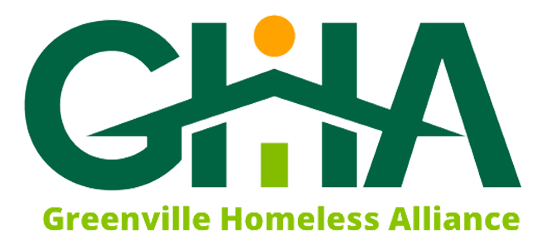Deeper Questions to Bring Deeper Change
Greenville is home to 4,000+ remarkable nonprofits with approximately 6.4 organizations serving every 10,000 people. And yet with all these resources, I wonder, have we significantly disrupted cycles of poverty in our community? Disrupted cycles of instability? Homelessness? Trauma?
I believe our nation is experiencing the effects of a “post pandemic, relief funded” economy, and the needs of members in our community have changed again. Just as we hit pause to adjust services to best meet the changing needs of our community when COVID entered our world, we must do the same now. We need to reassess community needs and recalibrate our organization’s operations accordingly.
For example, let’s look at evictions. Greenville has seen 16,344 individuals and/or families evicted since COVID. In a typical year, only 9% of South Carolinians will face eviction, but this number represents 25% of total renters in Greenville.
This past month I’ve noticed an increase in the number of individuals and families calling for help with evictions with higher eviction costs than I’ve ever seen before. Unfortunately, due to the higher costs, the organizations we typically refer to for rental assistance do not provide enough money or have availability quickly enough to help these individuals and/or families.
In response, we’ve (Buncombe Street United Methodist Church) begun to band together with other faith communities to cover these higher eviction costs. We’re making temporary shifts to accommodate what we hope will be a short-lived need for those living in this “post pandemic, relief funded” economy.
Noticing this trend has made me curious—are other organizations recognizing shifting community needs? What are you seeing? Are there ways we, as a collective group of nonprofit organizations, can work together to best help? Partnering with other faith communities to pool funding has been instrumental for us as at Buncombe Street as we work to reimagine how we can more effectively address challenges.
Here are a few questions we’re keeping in front of us that I hope are helpful to other nonprofit leaders.
· Why do we exist? If we no longer existed, how would Greenville be affected?
· Are we making an impact that matters?
§ Eg. Are the people we are working to help ultimately meeting their goals and becoming productive members of society?
· Is our “why” at the center of what we do? Is it motivating our actions?
· Why do we do things the way we do? Have we always done it this way? Is it still working?
§ Eg. Are we really helping by serving 50 people with $100 in utility assistance, or could we better help by serving 10 people with $500?
I believe Greenville is distinguished by its compassion, but it must be coupled with wisdom. If we’re not actively comparing current needs of our community to the work we’re providing, then our work won’t be effective. We must be “adapting work based on data and changes in the external environment in pursuit of ultimate results,” emphasizes Paul Schmitz, CEO of Leading Inside Out and advocate of collective impact work.
As you continue to assess and adapt your organizations, offerings, or operations, I encourage you to connect with two nonprofit leaders on LinkedIn and ask for their perspective on current trends they’re seeing and compare to your observations. Bring your findings to GHA’s next Stakeholder Meeting on April 28th at Triune Mercy Center from 2-3 p.m. Be ready to engage in the upcoming listening sessions to help identify ways organizations can do things differently in response to the lingering effects of COVID.
Let’s create more synergy and be more strategic with how we’re working together to significantly disrupt cycles of poverty in Greenville.
Emily Kodat
Crisis Ministry Coordinator
Buncombe Street United Methodist Church
References
https://www.sciway.net/org/community/greenville.html#greenville-environment
https://www.governing.com/archive/gov-nonprofits.html
https://evictionlab.org/eviction-tracking/greenville-sc/
https://www.washingtonpost.com/business/2021/07/12/coronavirus-spending-economy/
https://ssir.org/articles/entry/10_dangers_to_collective_impact
